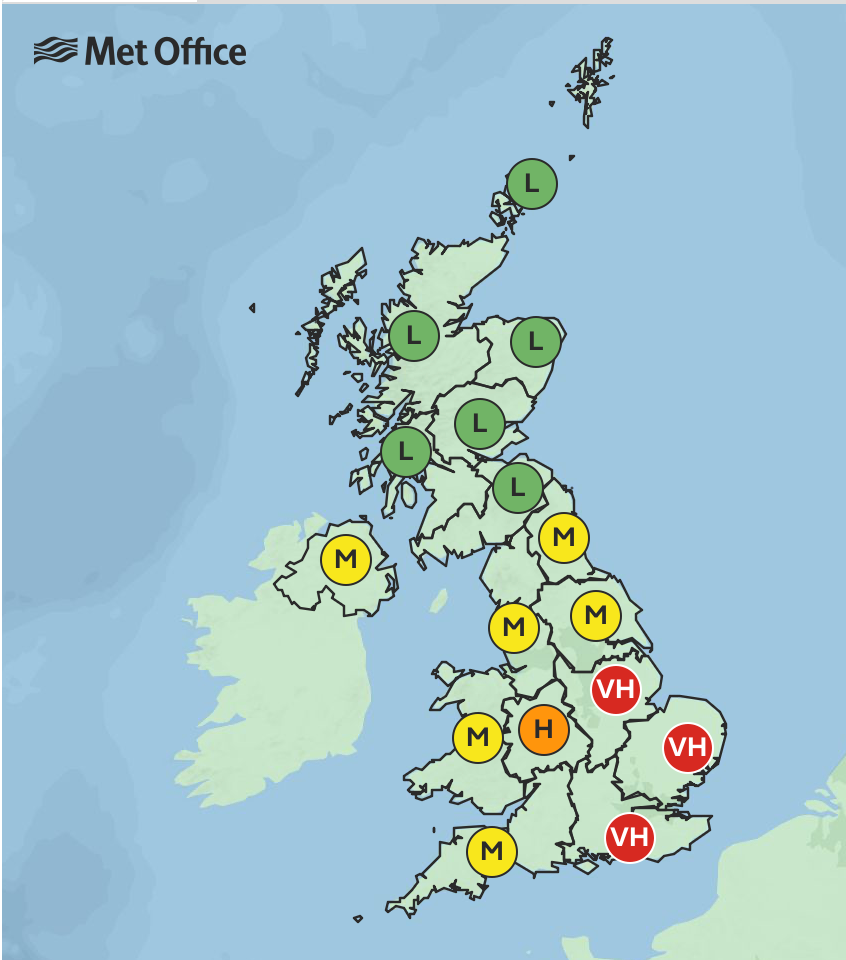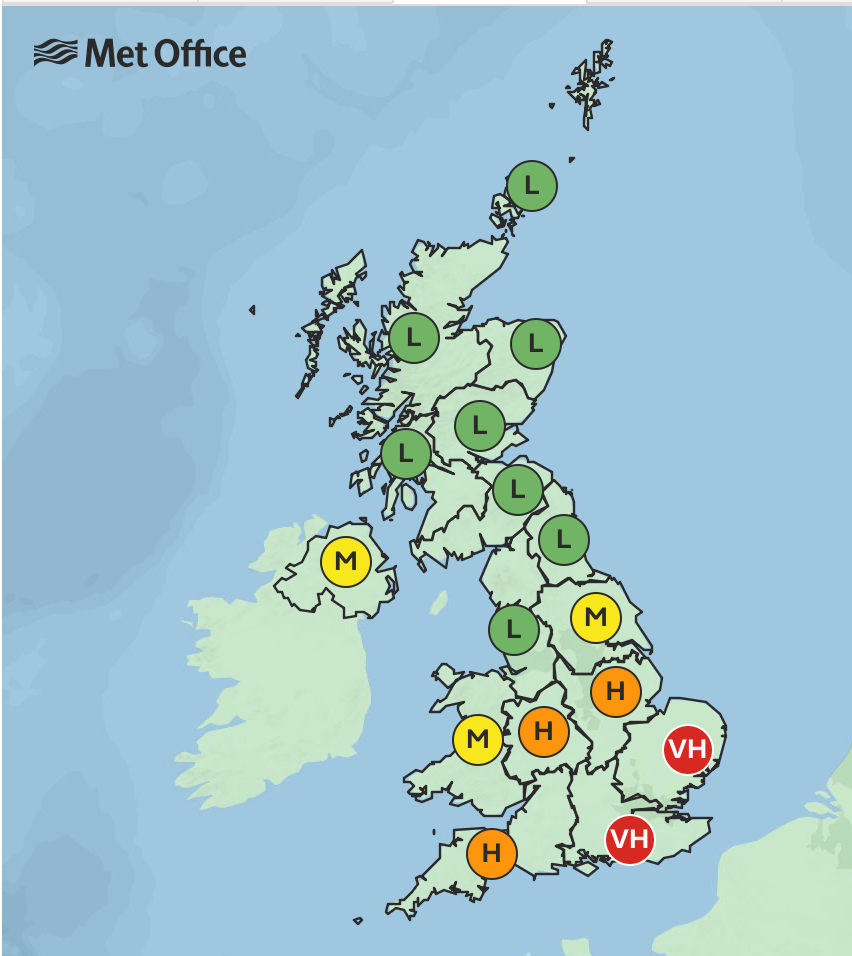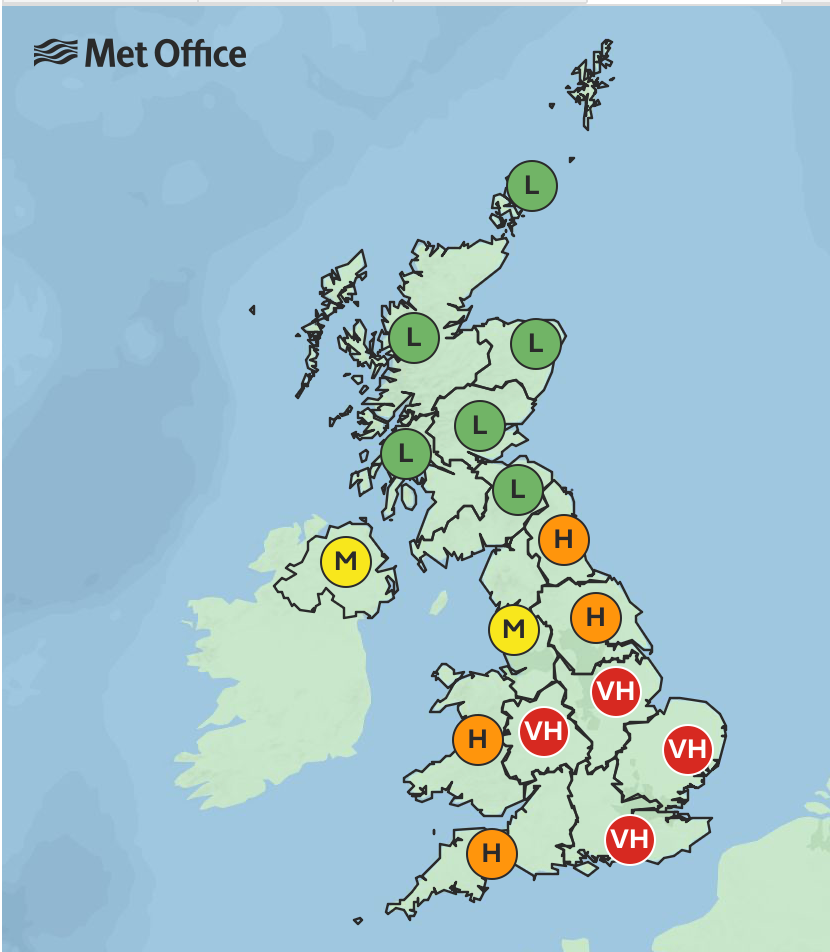Britons should be braced for an early hay fever season as pollen counts across the country are set to surge this week.
A new Met Office pollen forecast map shows four regions in England have a “very high” warning level for pollen later this week.
High pollen counts could mean many people could experience sneezing, itchy eyes, mouth and throat and blocked noses.
More than 10 million people in Britain suffer from hay fever, according to the Met Office
The pollen count is the number of particles per cubic metre of air, with a reading of between 50 and 150 grains of grass pollen considered high.
The East of England, London and the South East, and the East Midlands will have “very high” pollen counts on Monday, the Met Office forecast shows.

On Tuesday, the West Midlands, East Midlands, Eastern England and London and the South East will experience high pollen levels, the forecaster said.
On Thursday, the same areas will have “very high” levels of pollen. The Met Office said the alerts come because warm, dry conditions allow tree pollen to thrive, particularly birch.
The high pollen count alert will be in place in Eastern England and London and the South East on Wednesday too.

The very high alert on Thursday covers swathes of English towns and cities including, London, Kent, Sussex, Surrey, Essex, Suffolk, Norfolk, and Cambridgeshire.
The West Midlands, including Birmingham and Coventry, as well as the East Midlands, covering Nottingham and Leicester will also be covered by high pollen counts.
Yorkshire and the Humber, North West England, North East England and Northern Ireland will have medium pollen counts on Tuesday, the forecaster said.

Wales, South West England, Yorkshire and North East England will also have high levels of pollen on Thursday.
The Met Office said the symptoms of hay fever include “frequent sneezing, a runny or blocked nose, itchy eyes and an itchy throat, mouth, nose and ears.”
“As a sufferer, you may also experience the loss of your sense of smell, facial pain, sweating and headaches – although these symptoms are less common,” it added.
“Asthma sufferers may find that their symptoms get worse when suffering from hay fever and may experience a tight chest, shortness of breath, coughing and wheezing.”
There is no cure for hay fever, although most people can relieve their symptoms with treatment.
The Met Office’s advice said: “The most effective way to prevent hay fever is to avoid exposure to pollen but this is almost impossible, particularly during the summer months.
“Instead, many people rely on antihistamines, which can prevent the allergic reaction from happening, and corticosteroids, which reduce any inflammation and swelling caused by the pollen allergy. Eye drops can also help.
“Over-the-counter treatments should be sufficient to ease your hay fever symptoms, but if you are experiencing more severe symptoms, you should speak to your GP.”






